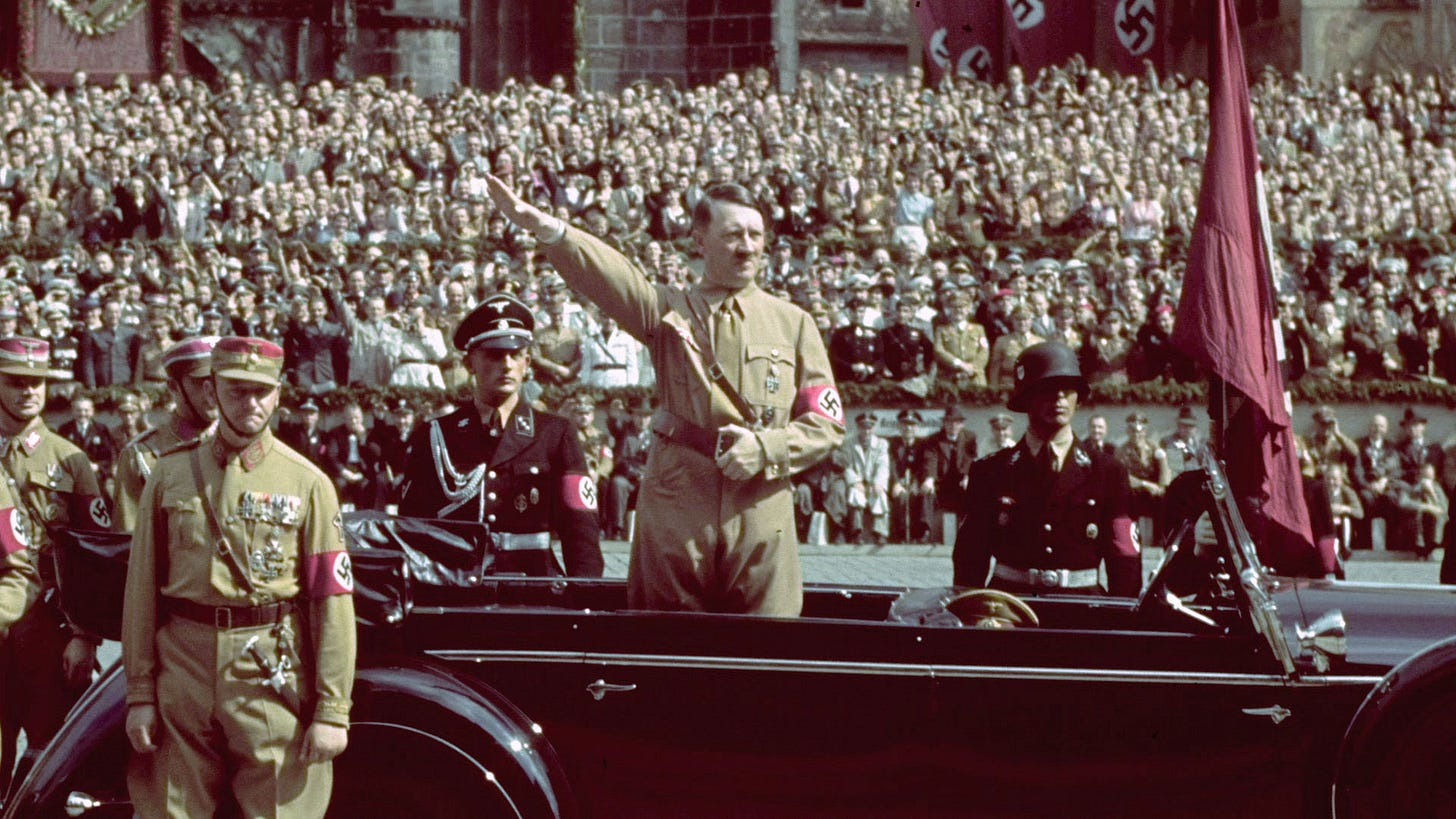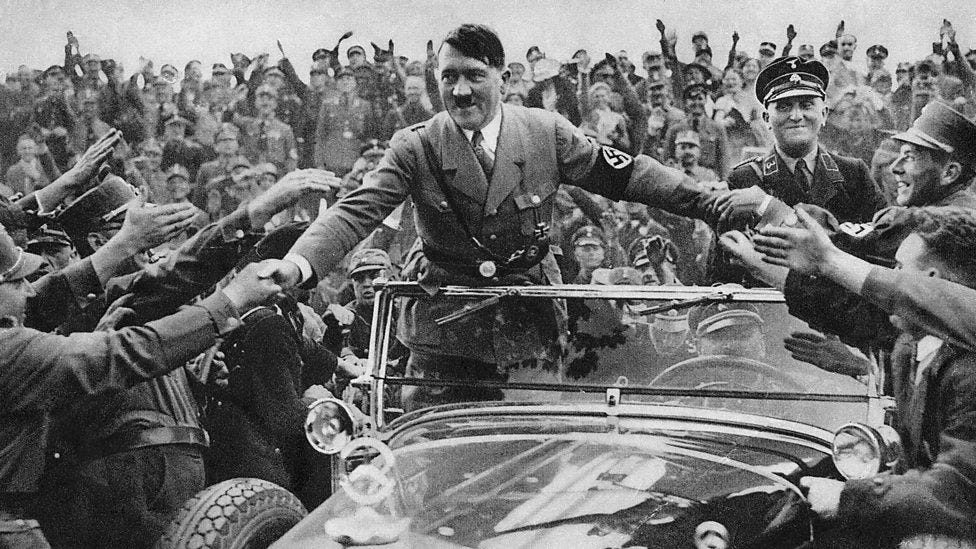On This Day 1934: Hitler Becomes Führer
How a public vote gave Hitler absolute power and turned Germany into a dictatorship
There are dates in history that do not involve bloodshed or battle but still feel chilling. 19 August 1934 is one of them. It marked no major military action, no grand declaration of war, and no sudden collapse. Instead, it was a vote. A national referendum. A box ticked on a ballot.
But that single vote confirmed Adolf Hitler as absolute ruler of Germany. He was no longer simply Chancellor. He was now Führer, the supreme leader of both state and people. From that moment, Germany had no checks, no balances, and no way back.
The death of Hindenburg
In the years following the First World War, Germany had been struggling. The Weimar Republic was fragile. The Treaty of Versailles had humiliated the country. The economy was crippled. Unemployment was high. People felt ashamed, angry, and desperate.
Enter Adolf Hitler.
Appointed Chancellor in January 1933, Hitler immediately began reshaping the country to fit his vision. Within months, civil liberties were rolled back. Opposition parties were outlawed. The press was muzzled. The Reichstag Fire was used as a pretext for emergency powers. But there was still one figure above him in the state: President Paul von Hindenburg.
Hindenburg was a national hero. An old man, yes, but a respected one. He did not trust Hitler but tolerated him as a necessary compromise. As long as Hindenburg lived, Hitler’s power was not fully secure.
On 2 August 1934, that final barrier fell. Hindenburg died at the age of 86.
The final power grab
Within hours of Hindenburg’s death, Hitler moved to consolidate power. A decree was issued that merged the offices of Chancellor and President. The German people were told there would be a referendum to approve this change.
The vote was scheduled for 19 August 1934.
The campaign that followed was more theatre than democracy. State propaganda portrayed Hitler as Germany’s saviour. Churches were pressured into compliance. Opposing voices were silenced. Ballot secrecy was dubious at best, especially in small towns and villages.
On the surface, the question seemed simple: should Hitler be confirmed as Führer and Reich Chancellor, combining both roles into one? But behind that question was something much darker. A vote for Hitler was not just a vote for leadership. It was a vote for total power.
When the results were announced, nearly 90 percent of the population had voted in favour.
A new kind of power
From that day forward, Hitler was not simply head of government. He became the embodiment of the German state. The military no longer swore loyalty to Germany. It swore loyalty to Hitler himself. Every command came from him. Every decision began and ended with him.
There were no more elections. No more debates. No more dissent.
The word Führer came to represent more than leadership. It meant obedience without question. It meant control without opposition. It meant the end of democracy in Germany.
As someone born in 1981, I look back at this date with a mix of horror and disbelief. To imagine a country giving away its democracy so willingly is difficult. But it happened. And it happened not by accident, but by design.
The illusion of legality
One of the most frightening things about 19 August is how normal it appeared. It was not a coup. There were no tanks in the streets. No sudden violence. Just a national vote. Posters, speeches, ballot boxes. The structure of a free society remained, but the soul had already been removed.
This is what makes Hitler’s rise so unsettling. It did not require constant force. It required fear, propaganda, and the gradual erosion of resistance. By the time the referendum came, most people either supported him or were too afraid to say otherwise.
Germany had not been taken. It had been persuaded.
What came next
With Hitler now holding total power, the Nazi regime moved rapidly. The Nuremberg Laws were introduced, stripping Jewish people of their rights. The Gestapo expanded. Schools, churches, and workplaces became tools for indoctrination. Opposition became impossible.
In less than a decade, Germany would be at the heart of the most devastating war the world has ever known. But it began here, with a quiet, calculated moment. A day when the people were asked to choose. And most of them said yes.
The long shadow
When I read about 19 August 1934, I do not just see a dictator rising. I see a democracy collapsing. Not in one night, but piece by piece. I see how fear can replace debate. How strongmen can win with promises of stability. And how easy it is to justify giving up liberty for the illusion of safety.
The lesson is not just about Germany. It is about everywhere.
Final thoughts
On this day, 19 August 1934, Adolf Hitler became Führer of Germany. Not by force. Not by surprise. But by a vote.
It was the moment democracy ended in Germany. The moment obedience replaced freedom. The moment a nation handed itself over to tyranny.
This is why we remember days like this. Not to look down on the past. But to understand how quickly the present can become something very different.



